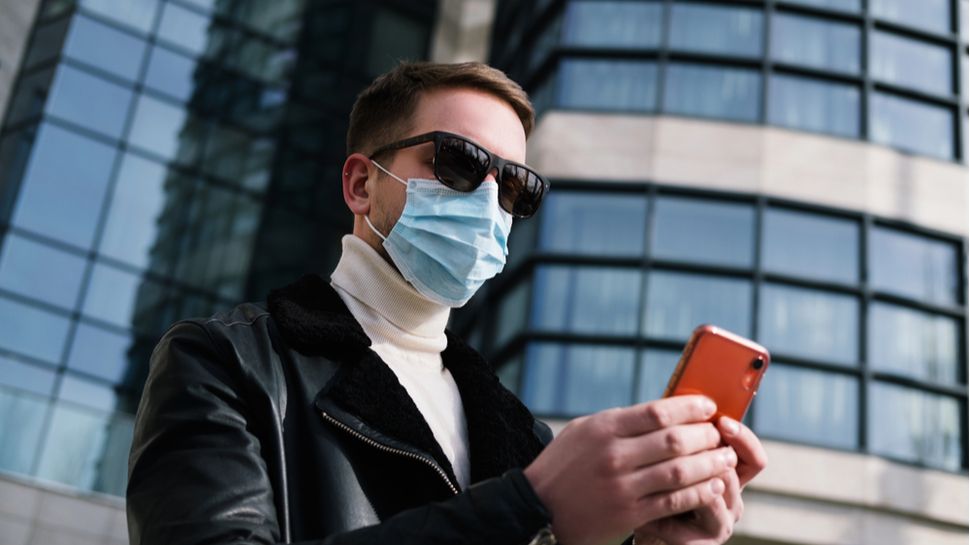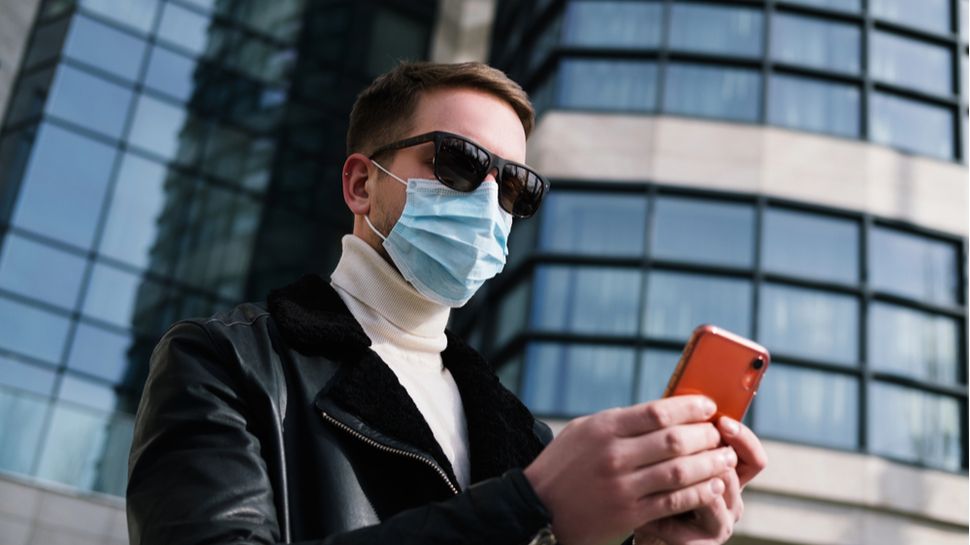
The new iOS 13.5 update for the iPhone has just launched and it’s ready to end all of your troubles with using Apple’s Face ID when wearing a face mask, and it seeds a way for your local public health agencies to develop contact tracing apps.
This very Covid-19-focused software update comes with official release notes, which begin with the most immediately helpful new iOS 13.5 feature: reducing the delay of showing the passcode menu on iPhones with Face ID.
This lets you type in your PIN from the get-go. What’s interesting is that Face ID still seems to work when you’re not wearing a face mask, so you don’t have to manually switch back and forth between the two security methods in settings.
Face mask recognition is a relief for something that’s been bugging us for the last two months. While Face ID, on everything from the iPhone X to the iPhone 11 Pro, is wildly advanced and secure, it doesn’t deal with face masks well at all. That’s been frustrating when you own one of the priciest of the best phones in the world.
Now, the ability to enter the traditional passcode from the start helps avoid having to awkwardly fail out of Face ID twice just to get to the passcode screen when unlocking your phone or buying something with Apple Pay.
iOS 13.5 will make life with a face mask a little easier.
Officially called ‘Exposure Notifications’ in the iOS 13.5 update, Apple (along with Google doing the same with Android) has baked in an API for contact tracing apps.
This framework will allow governments and public health agencies to develop apps that alert you if you’ve come into contact with someone who later tests positive for Covid-19 and that person anonymously logs their positive result into a database.
No, the actual contact tracing apps aren’t here yet in iOS 13.5, but Apple and Google note that 22 countries across five continents have requested and received access to the API, while stressing that everything is being done to protect user privacy.
In addition to being contacted anonymously, the Exposure Notifications API uses Bluetooth Low Energy, not WiFi or other, more potentially identifiable means. The companies are working to make it impossible to create a digital paper trail, though privacy advocates still have concerns.
Apple and Google have also said that there are no plans to use this framework beyond the current pandemic.
Rounding out the new iOS 13.5 features are two smaller tweaks. The Medical ID data that’s a part of the Health app can be securely shared with emergency services when you place a 911 call in the US. Right now, it’s a US-only feature.
The second small perk to updating to iOS 13.5 involves Group FaceTime. You can prevent the video chat tiles from changing in size when a new main speaker takes the helm of the conversation.
We’ve download iOS 13.5 onto our iPhones and we will continue to explore it for any other hidden features and bug fixes that Apple may have made since iOS 13.4.
